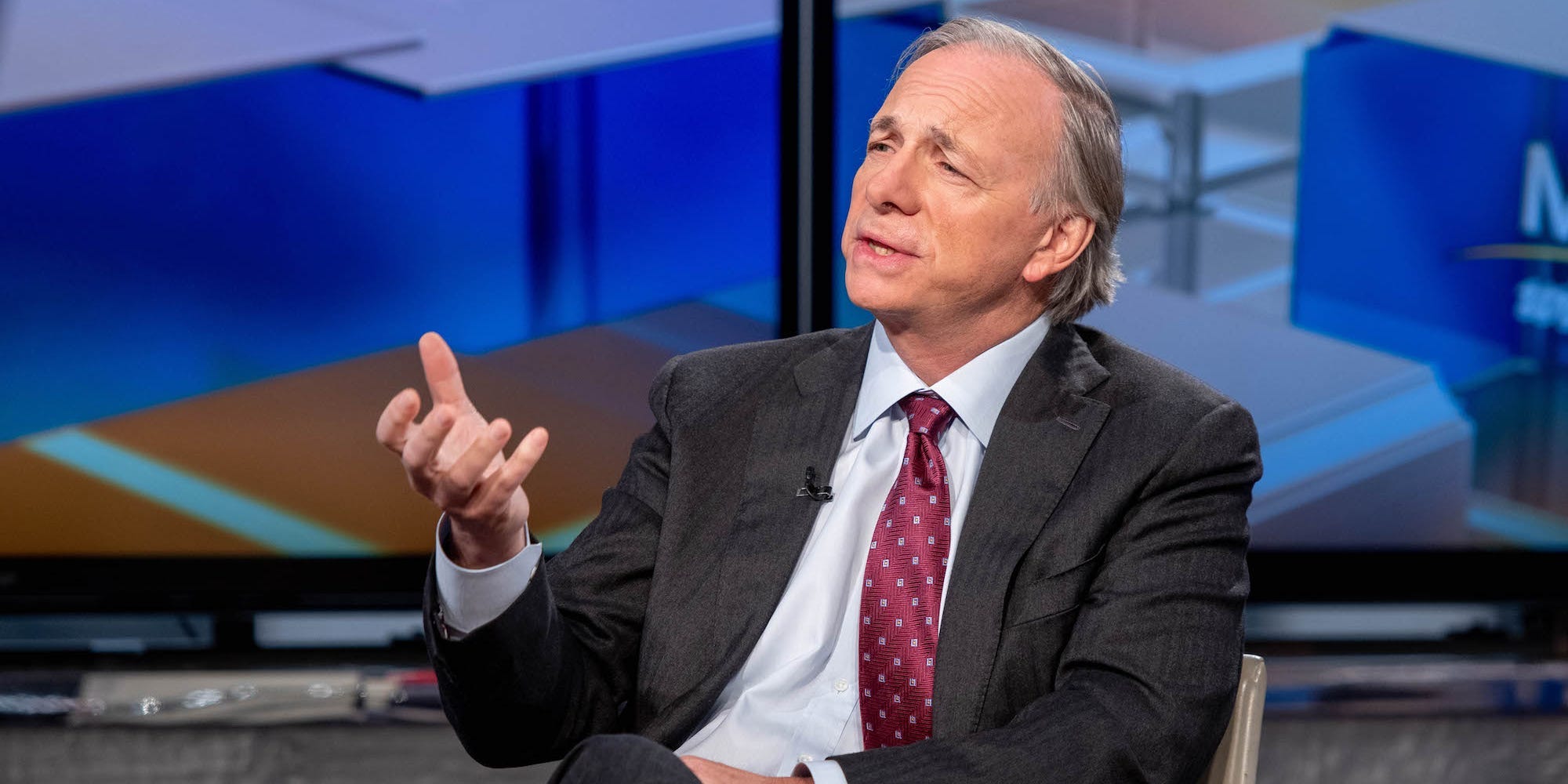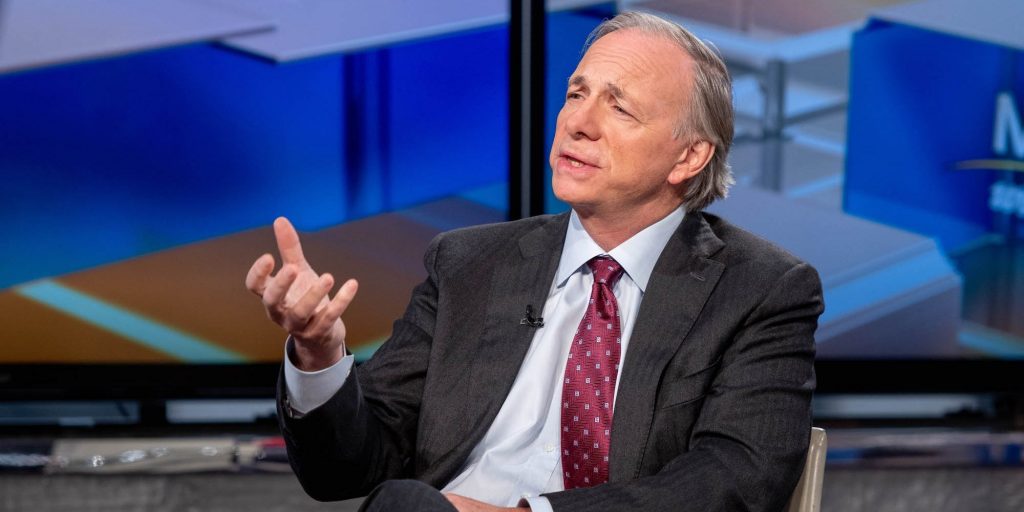
- Beijing's regulatory crackdown on its tech economy shouldn't spook investors, Ray Dalio said on Friday.
- He defended China's tightening policies, saying they are aimed at steady development of capital markets and entrepreneurship.
- Both US and Chinese equities should be included in one's portfolio, he said.
- Sign up here for our daily newsletter, 10 Things Before the Opening Bell.
Billionaire investor Ray Dalio said he isn't fazed by Beijing's regulatory crackdown affecting stocks of technology companies such as Didi, arguing the government's moves don't signal a reversal of longstanding policy trends.
He defended China's recent move to increase its grip on collection and use of data from all corners of the technology sector. Some Chinese stocks have logged their steepest declines in 2021 in the wake of the government's clampdown.
"China is a state capitalist system, which means that the state runs capitalism to serve the interests of most people and that policy makers won't let the sensitivities of those in the capital markets, and rich capitalists stand in the way of doing what they believe is best for most people of the country," the founder and co-chief of hedge fund Bridgewater Associates wrote in a LinkedIn post on Friday.
Despite the recent jitters, Dalio believes the US and Chinese markets both hold opportunities and risks, and are competent diversifers.
"Hence they both should be considered as important parts of one's portfolio," Dalio said. "I urge you to not misinterpret these sorts of moves as reversals of the trends that have existed for the last several decades and let that scare you away."
Shares in Didi Global fell as much as 10% from its IPO price in late July on news that Chinese regulators were considering serious penalties against the company. The ride-hailing service came under scrutiny for ignoring warnings about pushing ahead with its market debut despite an investigation into its data-security practices.
The selloff was likely a reaction to the perception that the government could force Didi's delisting, and expectations of what's in store for the industry. Losses in Chinese tech and education stocks have exceeded over $1 trillion, according to Bloomberg.
Following the market reaction, the Securities and Exchange Commission said US-listed Chinese companies must disclose potential risks of government intervention, or they could be violating the law. China's own regulator is now calling on the SEC to collaborate on the matter, in what is seen as a bid to ease investor jitters.
A rapidly-changing regulatory environment can be confusing for Westerners who don't believe the Chinese authorities are serious about using capital markets to promote the country's development, he said. These people mistake the government's actions are being mistaken as anti-capitalist, according to Dalio.
"Don't misinterpret these wiggles as changes in trends, and don't expect this Chinese state-run capitalism to be exactly like Western capitalism," he said.
These misunderstandings in the West can also prompt shifts in geopolitical stance, as is visible in the US freezing IPO listings by Chinese companies, according to the hedge fund manager.
Still, Dalio acknowledged it is unfortunate that Chinese policymakers don't communicate the reasoning behind their moves more openly.
Read More: Chinese stocks are tanking. Here's why their financial meltdown could get way, way worse.
